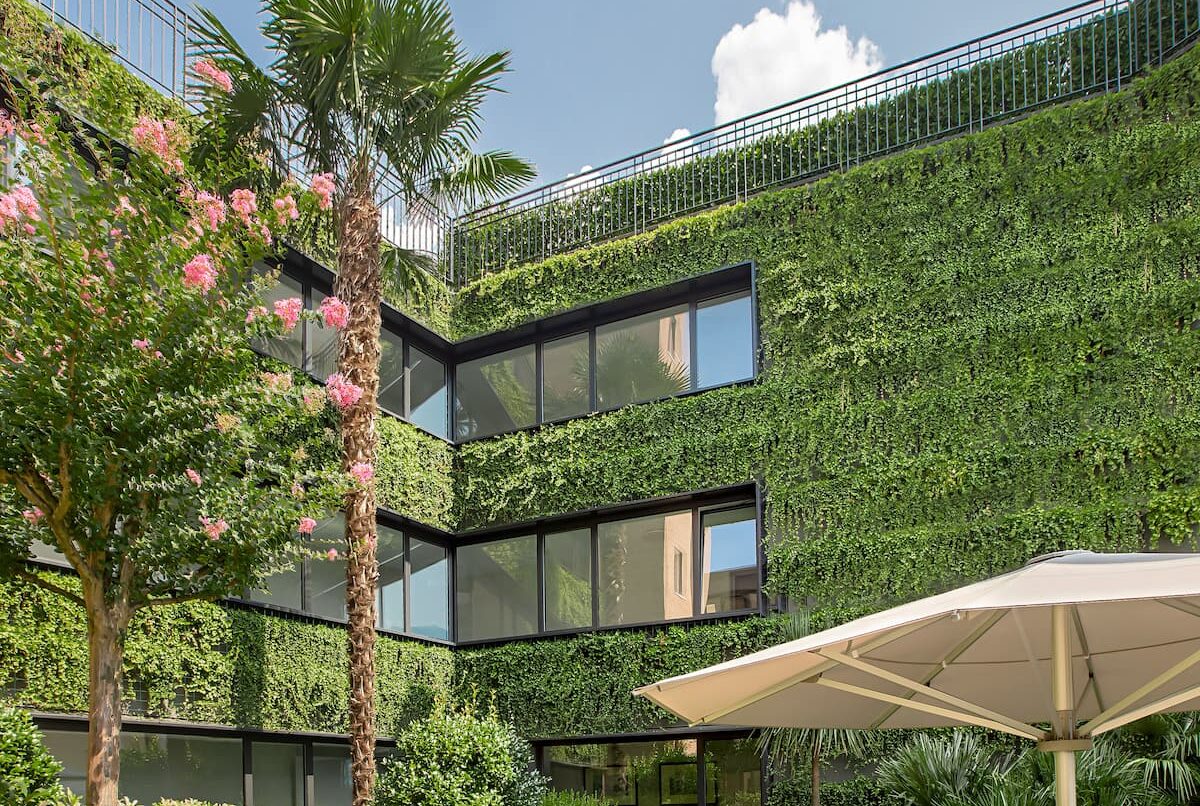Noise Barriers against Urban Noise Pollution
Noise pollution is one of the most invasive issues in urban areas, stemming from traffic, industrial activities, and daily city life. Besides compromising the quality of life, it has negative effects on health, such as stress and sleep disturbances. An effective and sustainable solution to this problem is represented by vertical gardens, which act as natural barriers by absorbing and significantly reducing noise levels.
How Does the Vertical Garden Block Noise?
The vertical garden functions as a sound insulator thanks to the ability of plants and the substrate to absorb, reflect, and disperse sound waves. The leaves, in particular, trap and reduce noise, while the soil and other plant materials further contribute to sound absorption. This combination creates a damping effect that can significantly reduce noise pollution.
What Are the Noise-Reducing Plants for Balconies?
Not all plants effectively absorb noise. Evergreen species with dense foliage and thick vegetative layers are the most suitable for reducing noise pollution. Here are some of the best options for a balcony:
- Bamboo – grows quickly and has thick foliage that makes it great for blocking noise.
- Ivy – with its lush growth, it can quickly cover vertical structures, acting as an effective sound insulator.
- Heather – characterised by small but dense tufts of leaves, forms thick mats that help block noise.
- Hornbeam – known for its dense canopy and leathery leaves, hornbeam hedges are ideal for creating thick green barriers.
Beyond Sound Insulation: Additional Benefits of a Vertical Garden
In addition to combating noise pollution, vertical gardens bring numerous benefits, including air purification, support for biodiversity, and the psychological well-being of inhabitants. They also act as thermal insulators, improving the energy efficiency of buildings.
How to Install and Maintain the Vertical Garden
Installing a vertical garden requires planning and care. It’s important to assess the structural load, light exposure, and irrigation system. Modular vertical systems, like those from Verde Profilo, are often the simplest solution for installation, allowing easy maintenance.


